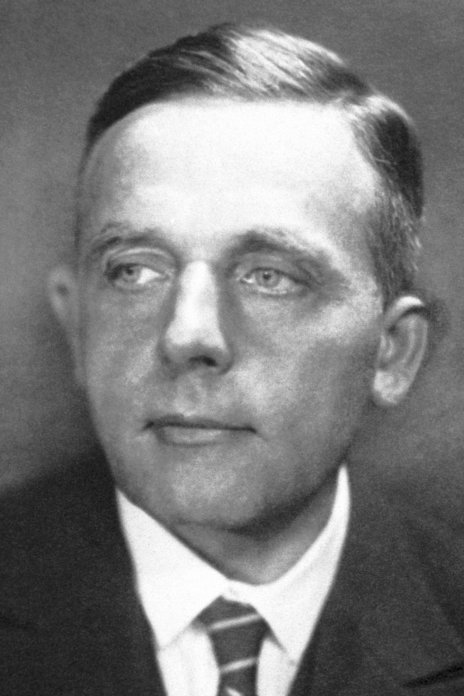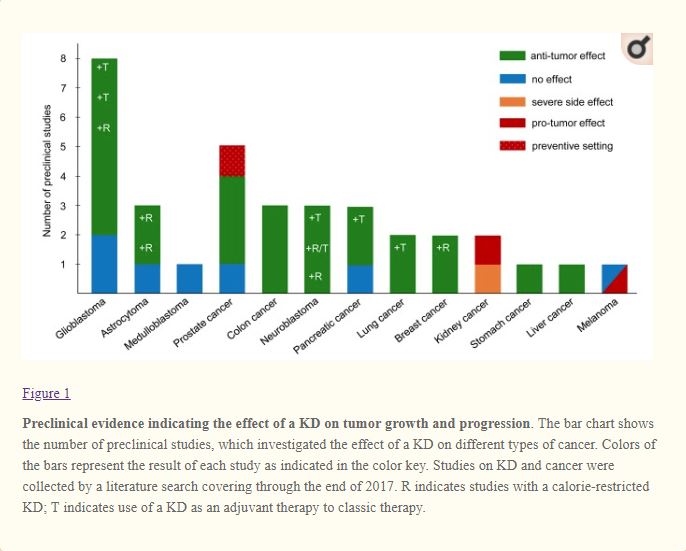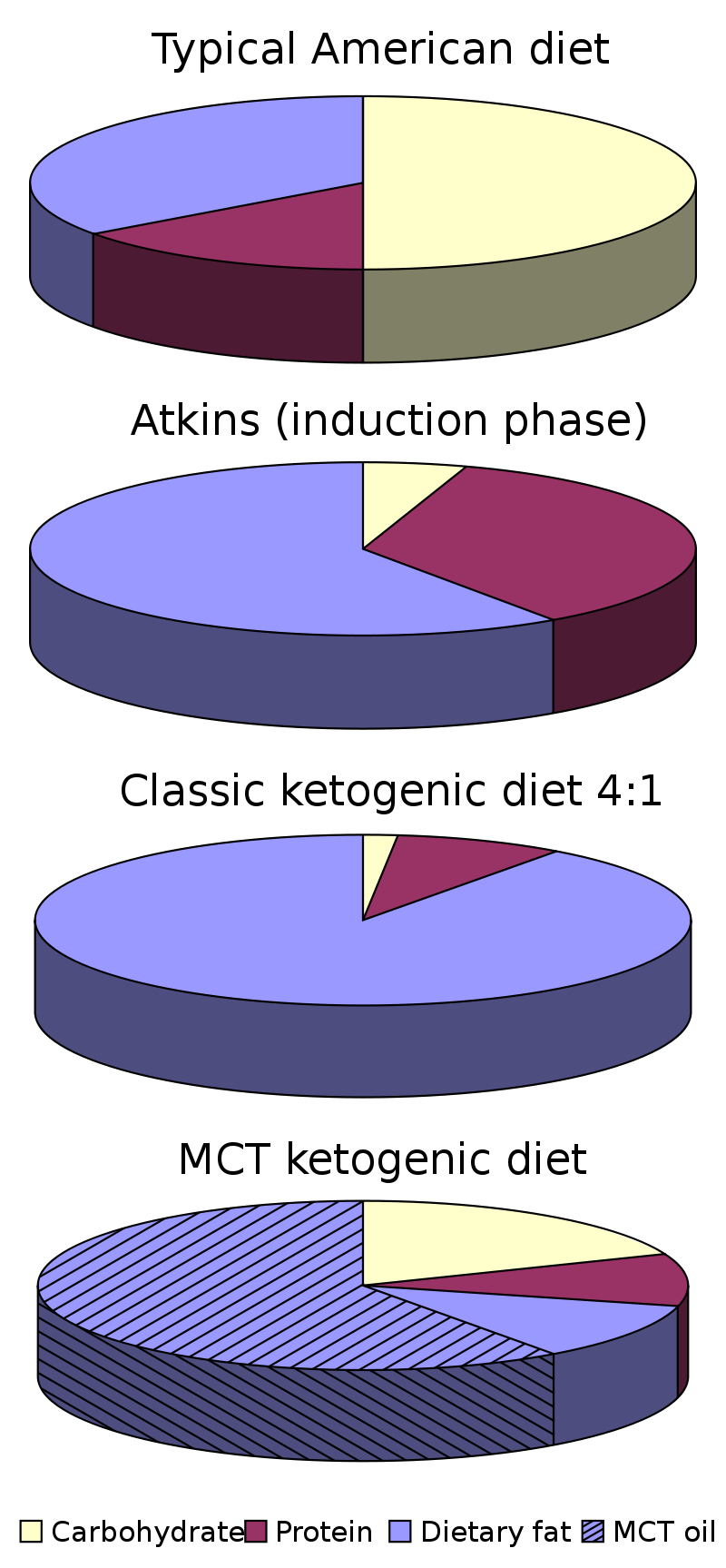The Ketogenic Diet is a big deal at the moment. Not only is it currently being touted as the way to lose weight, but it’s also being cited as having therapeutic benefits for a number of diseases and conditions, including cancer. But can the Ketogenic Diet really cure cancer?
When the Ketogenic diet was developed, in the 1920s, it was aimed at childhood epilepsy, not cancer. Now, as then, most epilepsy patients respond to anti-convulsive drugs. However, a significant proportion of epilepsy patients do not respond to this medication. Where medication didn’t work, the remaining options were: surgery; vagus nerve stimulation, and; the Ketogenic Diet. Of these, the Ketogenic Diet was the least invasive option and became a popular treatment during the 1920s and 30s.
The theory behind the Ketogenic Diet started a very long time ago. In ancient Greece, in fact. The ancient Greeks associated epilepsy with diet and found that by putting patients on a strict fast, the symptoms and seizures declined. In essence, they starved the epilepsy out of the patients. And, to some extent, it worked. In the intervening centuries it was found that it was the carbohydrates that were triggering the epileptic seizures. So the fast was altered to allow the consumption of protein and fat.
As such, the Ketogenic Diet evolved to become the consumption of a 4:1 ratio of fat to protein and carbohydrates. This means that you consume 80% of your daily calories in the form of fat. Typically, of the remaining 20%, 15% comes from protein and 5% from carbohydrates. As you can imagine, this is a very difficult diet to stick to. Not least because each gram of fat provides 9 calories, compared with only 4 calories per gram for fat and protein. meaning that you really don’t get to eat much on a Ketogenic Diet.
There are other variants to Ketogenic Diet. The Atkins Diet, for example, can be altered to achieve a lot of the seizure reducing benefits of the classic Ketogenic Diet. In the 1970s it was discovered that the medium-chain triglycerides (MCT) version of fat was the most ketogenic. This allowed the development of the MCT Ketogenic Diet, where only 50% of the calorific consumption needs to come from fat, while still achieving the reduction in epileptic seizures.

Photo by Derek Story on Unsplash
Which is all fine and dandy, if you’re a patient with epilepsy, but this doesn’t answer what the Ketogenic Diet has got to do with cancer.
Well, that’s all down to the changes that the Ketogenic Diet brings upon the body. The cells of the body usually get their energy by breaking down carbohydrates into Glucose. This glucose is then converted into ATP, which is the energy source used by the cells. If you’re not consuming any carbohydrates in your diet, it’s difficult for your body to run on glucose. It’s not impossible, because the liver can convert protein into glucose, by the process of Gluconeogenesis. But it can’t do that enough to power the whole body, which means that the body needs another energy source.
Fortunately, the body is also able to break down fat to use as an energy source. This is known as Ketosis, hence the Ketogenic Diet. When the body reaches a state of ketosis, it breaks fat down into Ketone Bodies. These ketone bodies can also be broken down into ATP, to be used as energy by the cells of the body.
This brings us on to the concept of the Ketogenic Diet being a cure for cancer. You see, as the theory goes, while all healthy cells can turn ketone bodies into ATP, cancer cells cannot. The idea is that if you stave the body of carbohydrates, leaving it only ketone bodies to live on, the cancer cells will all die out. Some even go as far as to suggest that the Ketogenic Diet is all you need to cure cancer. Not surgery. Not radiotherapy or chemotherapy; just the Ketogenic Diet.
For the origin of the concept that cancer cells cannot survive without sugar, we need to head back in time again. Back to the 1920s, and to a chap called Dr Otto Heinrich Warburg.
Through no fault of his own, Otto Warburg has become the poster boy for Alt Pharma and cancer cure quackery. Dr Warburg is often cited as having won the Nobel prize for curing cancer. While this is not the case, he was involved in looking for cancer cures and he did win the Nobel prize, which is more than enough to muddy the waters. He actually won the 1931 Nobel prize in Physiology or Medicine for, “for his discovery of the nature and mode of action of the respiratory enzyme“.

https://www.nobelprize.org/prizes/medicine/1931/warburg/facts/
You will notice that the Wikipedia page on the respiratory enzyme neither mentions the Ketogenic Diet nor a cure for cancer.
Dr Warburg was also nominated for a second Nobel prize in 1944 for, ‘his work on nicotinamide, the mechanism and enzymes involved in fermentation, and the discovery of flavin (in yellow enzymes).’ Nicotinamide, incidentally, does have links with cancer. Indeed, it’s a form of vitamin D3, which I’ve written about before. And vitamin D3 does seem to be able to help in the treatment of bowel cancer, at least. I now take vitamin D3 myself.
But, in and around the work that led to his Nobel prize nominations, Dr Warburg did a lot of research on cancer. He came up with a concept, which has become known as the Warburg Hypothesis (sometimes called the Warburg theory of cancer). Very simply put, the Warburg Hypothesis is that cancer cells prefer to get their energy from sugar, instead of fat; even in low oxygen environments. The inside of solid cancer tumours tend to be low oxygen environments.
You will note that in Dr Warburg’s workings he identifies that cancer cells prefer glucose.
The observation of Dr Warburg’s hypothesis is known as the Warburg Effect. The Warburg Effect is currently used as a diagnostic tool during PET/CT scans. In a PET scan, the patient is injected with a radioactive sugar solution and told to sit still. An hour later, the scan is conducted to identify where this radioactive sugar is being most used. Hot spots tend to be tumours.
The Warburg Effect is very real; cancer cells really like sugar.

Does this, however, mean that if you deprive cancer cells of all sugar, they can’t survive. By adopting the sugar-free Ketogenic Diet, can you cure cancer? And therein lies the question!
As you might expect, the answer is somewhat complicated. To put this into context, let me quote the Wikipedia page on the continuing research into the Warburg Effect:
“almost 18,000 publications have been published on the matter of ATP and the Warburg effect in the period 2000 to 2015. Most of the functions of the Warburg Effect have been the object of study. Thousands of publications claim to have determined its functions or causes.“
That’s more than 1,000 studies a year…
If there was a clear cut argument that the Ketogenic Diet can cure cancer, we’d know about it by now.
Whatever else the relationship between the Ketogenic Diet and cancer might be; it isn’t clear cut. Anyone suggesting otherwise is being misleading.
And there are people out there who are arguing that it is that simple: that the Ketogenic Diet is a cure for cancer.
One popular rationale as to why the Ketogenic Diet isn’t being prescribed by hospitals, is an economic one. Big Pharma can’t make any money out the Ketogenic Diet, so they’ll only push things like chemotherapy. Somewhat ironically, the people pushing this idea also seem to have an economic angle. Books, for example. Books for sale, explaining why the Ketogenic Diet is better as a cancer cure than anything that the money-grabbing Big Pharma has to offer.
This, oddly enough, is not enough to convince me…
A visit to some of the more recent research seems to be in order. In 2018, Weber, et al, published, ‘Ketogenic Diet in Cancer Therapy‘. This involved looking at a series of pre-clinical studies into the impact of the Ketogenic Diet on cancer. The study includes the following graph:

https://www.ncbi.nlm.nih.gov/pmc/articles/PMC5842847/
At this point, I need to make clear that pre-clinical studies means that the subjects of the tests were lab animals, not humans. This means that the information can only be thought of as an indicator because what it true for rats, is not always true for people.
That said, it’s a pretty interesting graph.
For one thing, in some instances the Ketogenic Diet actually made the cancer worse. This doesn’t mean that the Ketogenic Diet can’t help for any cancers but it does suggest that it’s unlikely to be the answer for all cancers. And this is very much to be expected. The simple rule that, ‘one size does not fit all’ is simple for a reason.
The report notes, in it’s conclusion, that clinical trials (on humans) would be needed for each of the cancer types before any firm conclusions can be drawn. However, it goes on to say:
“Based on the results of rigorous preclinical and clinical studies performed thus far, the [Ketogenic Diet] would appear to be a promising and powerful option for adjuvant therapy for a range of cancers.“
An adjuvant therapy is one that works alongside others. What this is saying is that the Ketogenic Diet shows promise as a therapy for cancers when used with existing therapies, not instead of them.

So, maybe in the future, cancer patients will be prescribed surgery, chemotherapy and the Ketogenic Diet. This should keep everyone happy. Well, except those who are trying to sell the idea that Big Pharma is preventing the use of the Ketogenic Diet as a therapy. Why would Big Pharma care if people are on a diet, while using their medicines. In fact it seems the only people who lose out, given the conclusions of this report, are those trying to sell books saying that only the Ketogenic Diet should be used in cancer treatment.
Which means, in answer to the question as to whether the Ketogenic Diet can cure cancer; no it can’t. There simply isn’t the evidence to suggest otherwise.
However, if you consider the alternative question of, ‘Can the Ketogenic Diet help with certain cancers?’
Here, the answer may very well turn out to be; yes.
But we’re not there yet. Clinical trials need to be conducted on the various cancer types to see how effective the Ketogenic Diet is, in each case. And you shouldn’t risk starting a Ketogenic Diet at this stage because, as the graph shows, the Ketogenic Diet seems to make cancer worse in some cases.
So, while the Ketogenic Diet cannot cure cancer, there is the very real chance that, in due course. it will turn out to be a helpful addition to the available treatment options.
